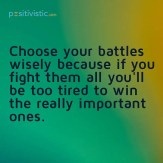
I have a very dear friend that was in a situation where the mother of a young man on trial had entered an elevator. Apparently, everyone around knew the identity of the woman and stood there, rather than getting on. Finally, my friend stepped on. It got me thinking about how often, we face a situation that we may be afraid of or be afraid to be seen as a part of so we stay where we are rather than embracing the opportunity to show grace and compassion.
We live in a world where we are faced with situations like this every day. We have a choice to show compassion or a chance to look the other way. I think sometimes people step up and show kindness if it is a public event that will gain publicity for a cause. However, I think it is much more likely that we face the opportunity, and no one will ever know. I believe in these situations, especially if it involves someone much different than ourselves, where we have to take a risk, put effort, or even face judgment from others, we are more likely to turn away in ambivalence or even disdain.
We live in a world where it is much easier to sit behind a screen and cast stones at those who may be different. We judge those for their humanity by calling names and calling for their downfall believing that we are safe united in a mob of anonymity and that no one will know about our name-calling and criticisms about situations we may not know anything about. I think we forget that this is the exact behavior that may incite others to violence. So often it is the one misguided soul that sees the “majority” expressing their unbridled anger online toward an individual or situation that inspires the one to seek justice on their own terms because they tie this what they see on social media to what they have faced in their own past and act against a perceived threat in unthinkable ways.
This world could be such a better place if people got out from behind the protections of social media and sought to learn about those who are entirely different than themselves. Attempt to learn about one another and the motivations behind their actions. If nothing else, wouldn’t the world be a better place if we saw someone in facing tribulation and just showed compassion for their struggle and stood beside them, even if nothing about their situation could be changed. We never completely know the journey someone else has traveled, but we can step up and walk beside them without criticism. Maybe the small gesture would change someone’s life for the better. Do like my friend. Take a risk rather than standing in fear. Show compassion rather than sitting in judgment. Get on the elevator.




























